You may have noticed I haven’t posted much this week. Why not? A lot has been going on.
LifeLock
First, I had one of my credit card accounts stolen this week. Thankfully, the credit card company caught it before it got too out of hand. The thief made almost $5000 worth of purchases online, but I think that since the company caught it so quickly, nothing was actually shipped out.
But as a result, I spent a good chunk of the week making sure all my other accounts were secure, signing up for LifeLock, and taking a few other steps to protect myself from this in the future. I am one of those “I never thought it could happen to me” people. But then it did.
And I am still recovering from it and holding my breath to see what else they got ahold of… I do recommend LifeLock if you don’t already have ID theft protection. They seem to be the best.
Writing
 Second, I realized my book on the violence of God is getting out of control. WAY out of control. I am nearly at 100,000 words and only about half way through the book. What I have written on the flood is nearly 20,000 words all by itself. I’m drowning in the flood. That’s bad.
Second, I realized my book on the violence of God is getting out of control. WAY out of control. I am nearly at 100,000 words and only about half way through the book. What I have written on the flood is nearly 20,000 words all by itself. I’m drowning in the flood. That’s bad.
Also, I am getting somewhat bored with the topic, and if I am getting bored, I am pretty sure you might be getting bored with it too. I think what I might do is cut out the 20,000 words I have written on the flood, and summarize it down into 1000 words or so. What do you think of this idea? Of course, I have only posted about 5000 words so far of the 20,000 I have written, so maybe I should post the next 15,000 over the next two weeks or so, and then let you decide whether it is worth keeping….




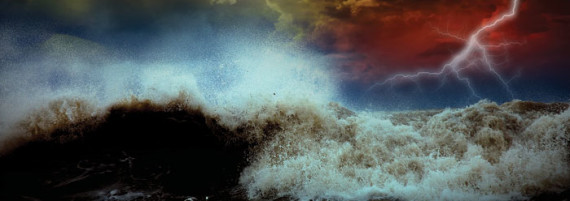
 In the previous posts in this series about getting to know our neighbors (sign up below to receive all the posts by email), we discussed first getting acquainted with our neighbors and then building relationships with them. Once we have built relationships with at least some of our neighbors, we’re ready to move on to the next step, group events. Even though it is tempting to skip getting acquainted and building relationships and go straight to a group event, such as a backyard barbecue, we have discovered that the group events always function more smoothly when we know and have already established a relationship with everyone we invite to the event.
In the previous posts in this series about getting to know our neighbors (sign up below to receive all the posts by email), we discussed first getting acquainted with our neighbors and then building relationships with them. Once we have built relationships with at least some of our neighbors, we’re ready to move on to the next step, group events. Even though it is tempting to skip getting acquainted and building relationships and go straight to a group event, such as a backyard barbecue, we have discovered that the group events always function more smoothly when we know and have already established a relationship with everyone we invite to the event.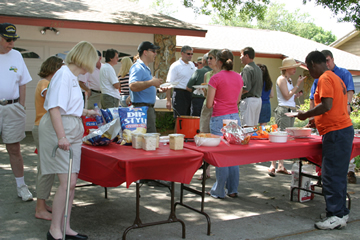 Near the end of the evening, my wife and I proposed a “block party” for the 4th of July. Everyone liked the idea. The neighborhood is really getting into this. We now have two co-chairs and people from other streets in the neighborhood are asking if they can come. We’re inviting everyone on our street, and those people may invite anyone else from the neighborhood, as well as their friends and relatives. We have not seen this much enthusiasm since we moved here. We may get 30 or 300. We’re passing out “Save The Date” flyers today and tomorrow.
Near the end of the evening, my wife and I proposed a “block party” for the 4th of July. Everyone liked the idea. The neighborhood is really getting into this. We now have two co-chairs and people from other streets in the neighborhood are asking if they can come. We’re inviting everyone on our street, and those people may invite anyone else from the neighborhood, as well as their friends and relatives. We have not seen this much enthusiasm since we moved here. We may get 30 or 300. We’re passing out “Save The Date” flyers today and tomorrow.
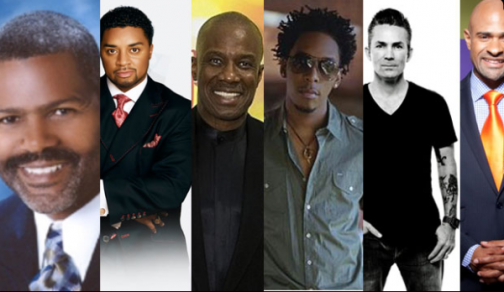
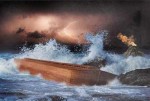
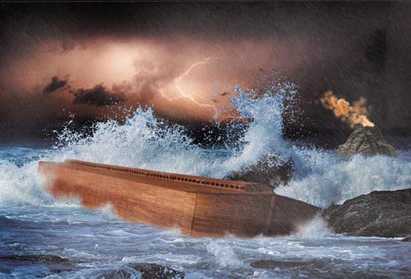 In seeking to understand what is going on in the account of the flood and why the waters that came upon the earth, we must understand the Ancient Near East cosmology. That is, what they thought about how the world worked, and what connections existed between the spiritual realm and the physical realm.
In seeking to understand what is going on in the account of the flood and why the waters that came upon the earth, we must understand the Ancient Near East cosmology. That is, what they thought about how the world worked, and what connections existed between the spiritual realm and the physical realm.
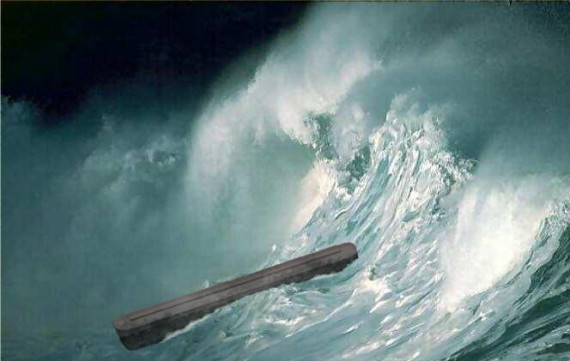

 When I first sat down to study and research the flood account through the lens of Jesus Christ, I initially thought that the key to this text was found in faulty English translations.
When I first sat down to study and research the flood account through the lens of Jesus Christ, I initially thought that the key to this text was found in faulty English translations.
 Of all the violent texts in the Old Testament, the portrayal of the flood in Genesis 6–8 may be the most difficult text to understand.
Of all the violent texts in the Old Testament, the portrayal of the flood in Genesis 6–8 may be the most difficult text to understand. Aside from the grim image of every living thing on earth gasping for breath and choking on water as they sink beneath the waves, the flood story also paints a troubling portrait of a God who seems incompetent because He regrets that He made mankind (Didn’t He know this would happen?), and who then foolishly tries to solve the world’s addiction to evil and violence by committing the greatest atrocity of all: worldwide genocide. One author describes the story with these words:
Aside from the grim image of every living thing on earth gasping for breath and choking on water as they sink beneath the waves, the flood story also paints a troubling portrait of a God who seems incompetent because He regrets that He made mankind (Didn’t He know this would happen?), and who then foolishly tries to solve the world’s addiction to evil and violence by committing the greatest atrocity of all: worldwide genocide. One author describes the story with these words: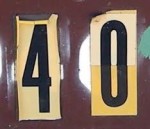
 I am going to start posting on the flood account tomorrow for my book When God Pled Guilty.
I am going to start posting on the flood account tomorrow for my book When God Pled Guilty. 

